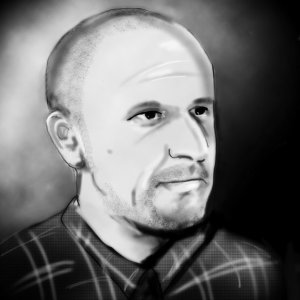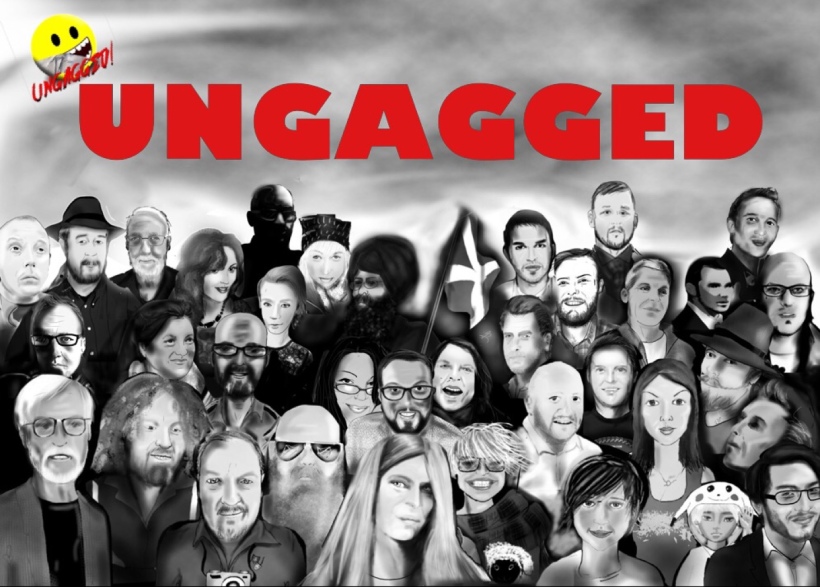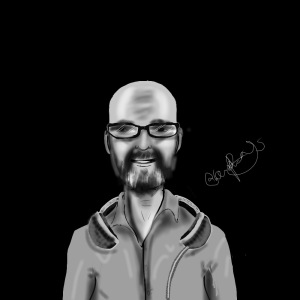
This post also appears on Brian’s blog
Like many on the left I was optimistic when Jeremy Corbyn became the leader of the Labour Party. I was happy to see him fend off the centrist Labour MPs such as Liz Kendall and latterly Owen Smith to be the leader of the opposition in Westminster. I was hopeful that the UK had a leader of the Labour Party that believed in the scrapping of our Trident nuclear weapons and ending Austerity.
I find myself wanting to cheer him on but get disappointed when I hear him acknowledge the ‘will of the British people’ in the 52/48 EU referendum to end freedom of movement. I got even more disappointed when Jeremy Corbyn stood on a manifesto, in June 2017, which supported the renewal Trident nuclear weapons; outvoted by his own party to do so. I lost all faith when he addressed the Scottish Labour Party conference this week and delivered a speech which blurred an issue of poorly paid agency workers with migrants coming to this country.
This has pandered to the controlling of mass immigration narrative which has been made to be a major factor for the working condition woes in the UK which is completely unfounded. Poor pay and working conditions are stagnated and driven down in the UK labour market because the National Living Wage (NLW) is low, precarious work is unregulated and jobs are being deskilled because of automation and centralisation of power structures.
Agency workers in areas such as manufacturing and hospitality sectors in the UK have historically been accepted and normalised. In fact, organisations such as Amazon and Ryanair still use agencies to staff their business. Different organisations use agency staff to different extents. Amazon has both their own employers and agency staff working in the back office and on the warehouse floor alongside each other. This allows them to quickly increase their workforce to the business needs and when workload demand increases. Ryanair has a slightly different approach, where their cabin crew and customer service staff are from agencies and their pilots are employed by Ryanair. This is known as marketisation where different specific areas of an organisation can be tendered out to an agency or in some cases third party companies; this is common with cleaners or maintenance for example.
These types of working arrangements can cause huge problems for employment relations and attempting to collectively mobilise staff to strike, or collectively bargain, as employees all work for different organisations or agencies and have unique terms and conditions of work. This fragmentation of the workforce dilutes any power the collective employees may have had to strike and means that, where trade unions are even acknowledged within the organisation, the strike will only impact on a small section of the business and have limited impact on the organisation’s ability to function and produce profit. It is important to acknowledge this is not accidental and organisations have adopted marketisation for this reason to ensure the employer holds the power and prevents, as much as possible, strike action taking place and it allows them to tender out parochial, specialised or in some organisations low skilled job roles.
I believe this is the issue that Mr Corbyn wants to address in relation to his speech at the Scottish Labour Party conference but what he did, which may be unintentional or possibly not, is talked about this issue in relation to cheap agency workers migrating to this country from abroad. I was shocked to see these words come out of his mouth and sounded like dog whistle politics of mass immigration driving down the wages and quality of work in the UK. He has previously stated that with the EU referendum result he would want to see the end of free movement of people because of ‘genuine concern over immigration by the electorate’ but, as a socialist leader, he should be standing up and arguing the case for free movement. Moreover, he should be specifically highlighting areas of the country which need immigration to continue to function such as here in Scotland. We have a declining population numbers overall and an ageing population, we have an urgent need to attract immigrants. By closing the door to the single market we stop the free flow of people from the EU and speeches like this could make us seem unwelcoming. The underpaid agency worker issue could be policed with the legal framework we already have; regardless to where that worker has come from.
It has been known, since the debate of introducing the National Minimum Wage (NMW), that the offer of meals, refreshments and accommodation from an employer can be offset from an employee’s wages. This means that if an employer is paid the ‘National Living Wage’ (NLW) they can have accommodation and cost of meals taken from their pay packet resulting in the employer having to part with less money to the employee. This type of working arrangement can be occupied by anyone not just workers from abroad. These types of adverts exist on Gumtree every summer for remote hotels in the north of Scotland and such like. The fact is agency workers are already protected under UK employment law to receive at least the NMW under the UK Governments Rights for Agency Workers. I do believe that a threshold should be put in place to ensure agency workers are not paying over the cost price for in-work accommodation and meals. A comprehensive framework is needed to ensure that employees are receiving company perks at production cost incurred to the business and the employer is not pocketing additional profit by exploiting agency workers in this manner.
The desirability of agency workers, from my extensive research in the hospitality sector, has reduced in the last ten years due to the adoption of zero hour contracts (ZHC). The use of these contracts, which contributes massively to in-work poverty and degradation of the power held by the employee in the UK, gives the employer similar flexibility benefits they traditionally had with agency staff. The use of these types of contracts rose by 300% in 2015-16 and is most common in service sector work. The ZHC is also more attractive as they do not have to pay agency fees. Agency fees can be particularly expensive and could cost the employer double the hourly rate than it would be to have their own employee but it did give the employer to stability of staff ‘on tap’ but this can now be achieved through ZHC’s. The use of ZHC’s as a method of employment tends not to suit skilled manual labour or specialised jobs which may amount to agency workers in these fields; for both indigenous and migrant workers.
The European Union is looking to change laws and regulations to migrant temporary agent workers which may not match ‘our’ values. There have been multiple treaties and policies that the UK has either managed to not sign up to or negotiate progressive changes at the ratification stage. Jeremy Corbyn talks of these potential EU developments in employment policy, which we won’t be part of as we’re leaving the EU if he gets his way, but neglects to reassure the audience what domestic levers could be used. I found the speech to be clouded and he was confusing incredibly important issues with migrant labour when it really didn’t need to be; as it’s an issue across the entire UK workforce.
It is clear that if Jeremy Corbyn genuinely wanted to help with this issue he could have dealt with it without referring to migrant agency workers. I don’t feel it was appropriate or relevant to do so, especially with all the misinformation and falsely created tension around immigration. I do feel it was opportunistic and yet he chose to make that speech in one area of the UK where we are crying out for migrant workers to come and join our workforce in Scotland. If Corbyn really had an understanding of what Scotland needs he would back Scotland having all immigration and workers’ rights devolved to Holyrood. This way we could see the end exploitative precarious working conditions and set an immigration policy that reflects our values and our needs for the future.



